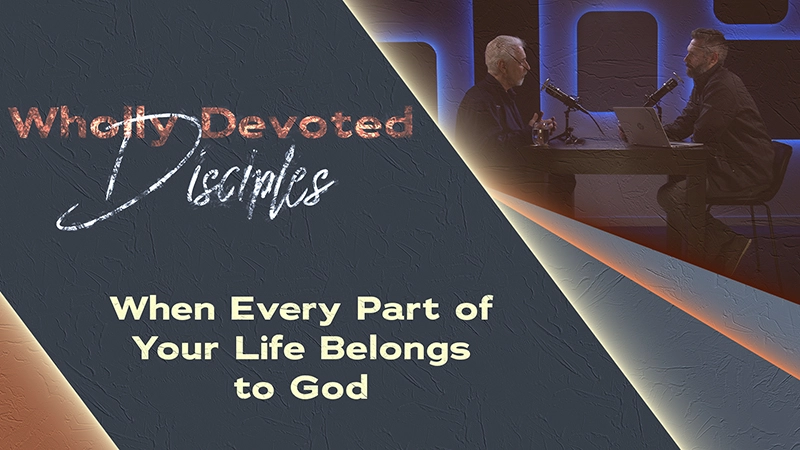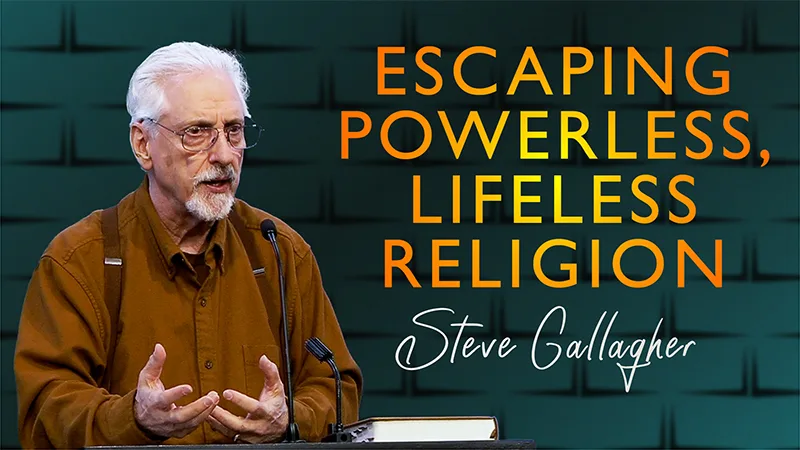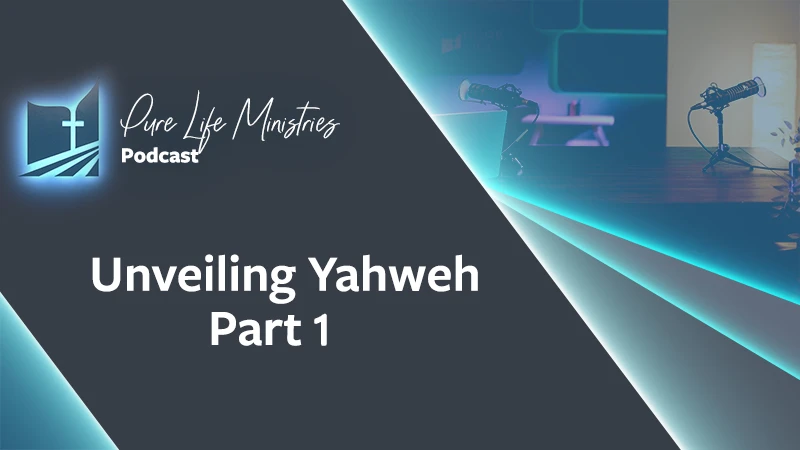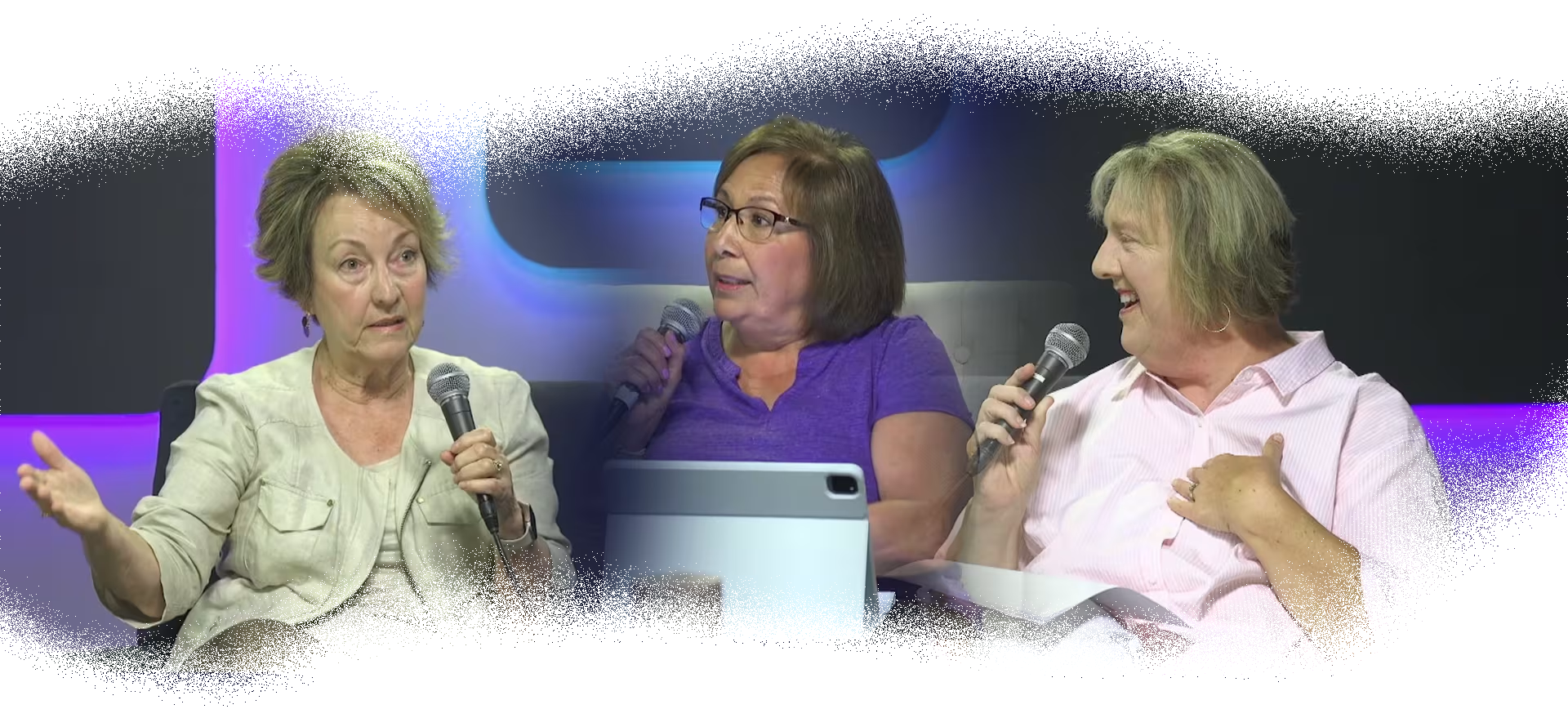
Dismantling Prideful Ways of Thinking
When God saves a person, He will begin the process of sanctification in them. He will remove old patterns of thinking and behavior and reform the person into the image of Christ. One of the biggest areas of indwelling sin that must be dismantled is pride. In part 1 of an interview from our Babylon podcast series, Gabriel, Ken and Nate all talk about areas where pride and self-centeredness were still active in their life after their conversion and what the process of sanctification looked like for them.(from Podcast Episode #500 - Satan's Kingdom of Pride)
Nate: Ken and Gabriel, I want to read a quote by Pastor Steve from Episode 500 of our podcast entitled “Babylon: Satan’s Kingdom of Pride:
“I want to welcome you to Satan's world of pride, where everybody is constantly encouraged to outdo each other. To rise up over the top of each other – even to despise each other. The mantra of the satanic Bible is, ‘do as thy will.’ In other words, you need not concern your inner self with God's desires or demands for your life. You need only be concerned about living life exactly as you wish. You only need be concerned about satisfying your self-life and all that is involved with it.”
So, what I thought we could talk about today is coming out of that kingdom of self and that kingdom of pride because we all can relate to the truth that just because you come into the Kingdom of God doesn't mean that all of your pride is gone.
I mean, we learned many ways of thinking and many ways of acting that flowed out of Satan’s kingdom of pride. So, as we come out of Satan’s kingdom into God’s Kingdom, we have to totally unlearn a lot of stuff and relearn, or even learn for the first time, a totally different kind of a life. So, I thought maybe we could talk about how our self-life has been dealt with by the Lord over the years and how he's brought us through painful breakings and corrections to kind of teach us how to be true followers of Jesus. Let’s discuss a specific time after we were converted where the Lord revealed an area of our lives that was not pleasing to God and real change needed to take place.
Ken: For me, it was coming out of the whole lifestyle of self-centeredness and pride. I was looking down on others. I was being judgmental and critical in my heart toward other people. And I think I was for the most part oblivious to it before the Lord dealt with me on those things.
Nate: What about you, Gabriel?
Gabriel: Well, I think for me, there was so much that the Lord dealt with in the beginning. There was a strong mentality of self confidence in me, especially in what I was capable and able to do. And I had a wrong sight of how the Lord viewed weakness. So, when I began to see that my weakness is actually God's strength, that for me was where I began to see differently. A lot of things about the Kingdom of God came into a new perspective in my mind once I saw that.
Specifically, my speech was one of the key areas that the Lord really revealed to me He wanted to change because it wasn't pleasing to Him. It wasn't so much cursing or worldly music, because all of that had been dealt with by this time. At this point I was beginning to see, there's a lot of flattery and gossip being spread through my speech. There were many things that I thought were okay, especially coming from the world in a business mindset. Flattery, gossip, and manipulation were ways of getting around things and helping yourself climb the ladder. So, for me, I never would have called those things what they were until the Lord really began to expose and put His finger on those things.
{{blog-bbaby="/blog-ads-storage"}}
Nate: One of the things that I was reflecting on for myself was when I became a manager back in 2015 here at Pure Life. And I think I knew intellectually that I was supposed to go into this with the mindset of being a servant, but over time I started realizing that I didn't believe that in my heart. What I really believed was that being a leader was all about getting other people to do what I wanted, as if they were my servants and it's all about them doing my will. So, if people didn't do what I told them to do, I would get frustrated. Or if I told them to do something a specific way and it came out differently than I expected, I would be upset or I would judge them. I would micromanage all kinds of decisions because I was like, “You're going to do what I want you to do.” I definitely thought that other people's decisions and ideas were way below mine.
So, the Lord started to really resist that in me. And probably my first year and a half to two years of being a manager were so painful because God resists the proud. And He made it hard for me to be like that. Most of the time it was in leadership meetings where I would bring all my ideas and plans and it was just like they kept getting shot down one after the other. It was really, really hard. And Gabriel, you already mentioned something I wanted to get into with this. When we let the Lord start to expose some of those things, the realities of the Kingdom or important spiritual principles can become precious to us because of what we're learning. Ken, you had talked about having self-centeredness. As you started to let the Lord deal with you about that, what became real to you about the Kingdom?
Ken: Mine specifically came out in just being critical or judgmental of other people. So, I remember I was walking near the dumpsters on campus, and something had happened recently where I was just being critical of someone. And of course, I'm justifying myself in my mind, you know, I'm right, they're wrong or whatever and I heard a gentle whisper. I believe it was the Lord saying, “Right now the only thing that really matters is if you’re loving that person.” The issue doesn't even matter. Who's right or who's wrong doesn’t matter. All that matters is, am I loving that person.
And He showed me the reality that if I'm going to live the Christian life, it's got to be a walk of love. It's got to be humility and esteeming others above myself. And my unloving reaction of not living in that love can be more of a sin than anything that I'm judging someone else for. So that was a huge wake up call for me and a huge revelation that that's what God is like. God's not up there judging me, but I'm sitting around judging everyone else. And that was a big turning point of realizing it was something in me that was wrong. It wasn’t the other person. My heart was not right. The posture of my heart was not a Kingdom heart, but it was that old self life just wanting to exalt itself at the expense of other people. Instead of humbling myself and just loving the person, whether I agree with them or not.
Nate: And it could manifest in a way that seems very spiritual.
Ken: Oh, yeah. I would even say to myself, “It's the principle of the thing. I'm not mad at them.” But I was mad at them, and I was full of myself and full of pride.
Nate: Ok. What about you, Gabriel?
Gabriel: My understanding of weakness and strength were not like God's understanding of them. And I really tried to mix a lot of Christian principles like poverty of spirit with my understanding of success. And I had a very worldly mindset of success. For example, I would look at being able to preach to multitudes as a goal and something that I would see as a successful accomplishment. And I mixed a lot of what the world was offering and success along with being able to share the gospel with people. I had to really wrestle through the mentality of success and being able to be confident and strong, because I was so convinced about my way of thinking.
I had to unlearn so many things that I had learned in school and from being in business with other people who were of the worldly mindset. It was no one else's fault, but it was what I was literally drinking in every day. And so hearing Jesus’s words in the beatitudes is what rocked me because I was really trying to compress everything that I knew from a worldly influence into the beatitudes and it just didn’t work. I really struggled through the whole aspect of being poor in spirit. Honestly, it frustrated me because I didn't want to be poor, and I didn't understand that. I was confused how I could be poor and be blessed. I wanted to know though, so I wrestled through that and especially when it came to weakness and it led me into a process of surrender. I had to give up my knowledge, my thoughts, and my intellect. I just came to the conclusion that I needed to be comfortable and content with not knowing and not understanding. And my faith began to grow from that point.
Nate: Yeah, I think the thing that I started to learn as I started to experience some brokenness over the way that I was leading was just that Jesus never leads from a place of pride. And I think we could all say that even as these truths have become real to us, it's not like we've perfected them. We're still learning how to do this. But it still really astounds me that He doesn't ever lead from a place of pride. He never counsels from a place of pride. He never helps other people from a place of pride. I don't even know if this makes any sense, but in His heart, He doesn't think that He's better than other people. Which is crazy because He is better.
He's better than all of us in every way, but He doesn't exalt Himself in the way that we exalt ourselves. He just is better. But He's lowly in his heart. And I started to see some of that and I started to want to be like that. Because in myself, I don't think your idea is better than mine. I don't think you're more talented than I am. In myself, I think I'm better all the time. That's who I am. So, it’s amazing to me that if He came and He was doing what we would do, He would look at someone else's work and He would say, “Man, that's amazing. You did a great job. I value what you did. I value your opinion. I value your perspective.” That's amazing to me.

















